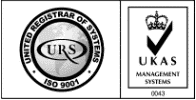A Guide to Choosing the Right UPS for Your Data Centre
Selecting the right Uninterruptible Power Supply (UPS) is not just a matter of ensuring constant electricity; it’s about safeguarding your data, protecting equipment, and maintaining operational continuity. This blog provides a comprehensive guide on how to choose the ideal UPS for your data centre, considering key factors that influence performance and reliability.

Understanding Data Centre Power Requirements:
Before delving into the UPS selection process, it’s crucial to assess the power requirements of your data centre. Consider factors such as the total power consumption of your IT equipment, the criticality of your operations, and the potential impact of downtime on your business. Understanding these aspects lays the foundation for choosing a UPS that aligns with your specific needs.
Factors to Consider When Choosing a UPS:
- Capacity and Scalability: Evaluate the power capacity of the UPS to ensure it can handle the load of your data centre. Additionally, consider scalability to accommodate future growth. A UPS with modular capabilities allows for easy expansion as your data centre evolves.
- Topology: Different UPS topologies offer varying levels of efficiency and protection. Common topologies include Online Double Conversion, Line-Interactive, and Standby. Assess the trade-offs between efficiency and protection to choose the topology that best suits your data centre requirements.
- Redundancy and Reliability: Redundancy is key in data centre operations. Opt for a UPS system with built-in redundancy features, such as parallel operation or a redundant configuration, to ensure continued operation even in the event of a component failure.
- Battery Technology: The type of batteries used in the UPS significantly impacts performance and maintenance costs. Consider the lifespan, maintenance requirements, and environmental impact of battery technologies such as VRLA (Valve-Regulated Lead-Acid) or lithium-ion.
- Management and Monitoring: A UPS with robust management and monitoring features is essential for proactive maintenance and rapid issue resolution. Look for systems that offer remote monitoring, alert notifications, and compatibility with data centre infrastructure management (DCIM) tools.
- Efficiency and Green Initiatives: Assess the energy efficiency of the UPS, as this directly impacts operational costs. Energy-efficient UPS systems contribute to green initiatives and can result in long-term savings. Look for UPS models certified with industry standards such as ENERGY STAR.
- Compatibility with Generators: In data centre environments, UPS systems often work in conjunction with generators during prolonged outages. Ensure compatibility between the UPS and your generator system, and verify the seamless transition between the two power sources.
- Service and Support: Choose a UPS vendor with a reputation for reliable service and support. This includes access to technical expertise, responsive customer service, and a comprehensive warranty or service agreement.
Selecting the right UPS for your data centre is a strategic decision that directly influences the reliability and resilience of your operations. By considering factors such as capacity, topology, redundancy, battery technology, management features, efficiency, compatibility, and support, you can make an informed choice that aligns with the unique needs of your data centre. Investing time in this decision-making process is an investment in the uninterrupted power supply that forms the backbone of your data centre’s success.







